Making Beer from Your Body
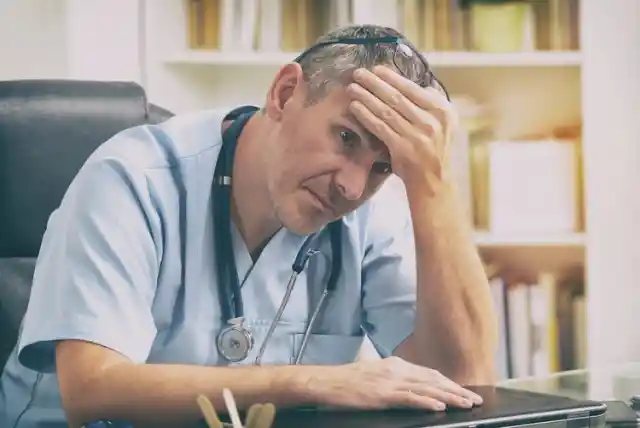
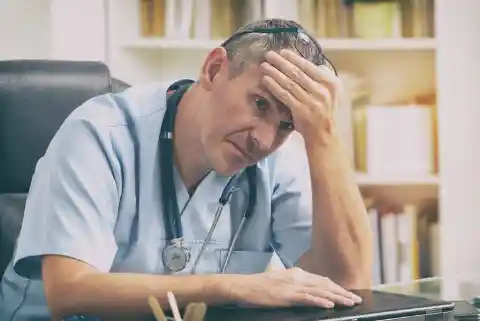
Going to school or university can only teach you so much, and this is especially true for medical professionals who have to deal with absolutely wacky, unusual, or mysterious cases on a daily basis. Study all you like, but when a patient comes in with a My Little Pony eraser stuck so far up their nose you can’t find it, you might find yourself having to think on the fly….
People are weird, and that often results in pretty weird injuries that send them into the care of doctors and nurses who…aren’t often prepared for what they see. Thanks to their carers’ quick thinking and years of experience, though, these patients end up walking out just fine. These medical professionals got together to share all the crazy times when they just had to mutter to themselves, “Well, they never taught this in school.”
Constantly Drunk
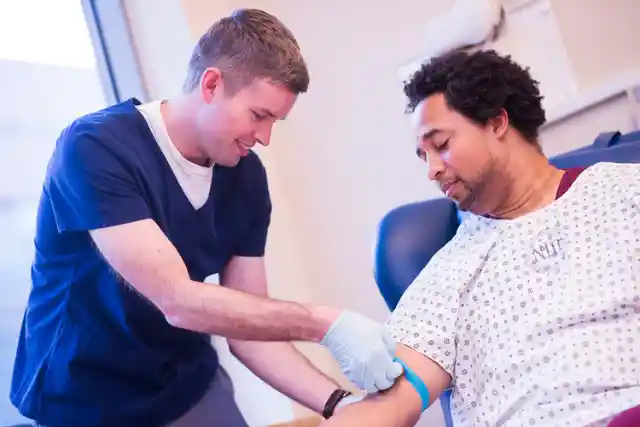
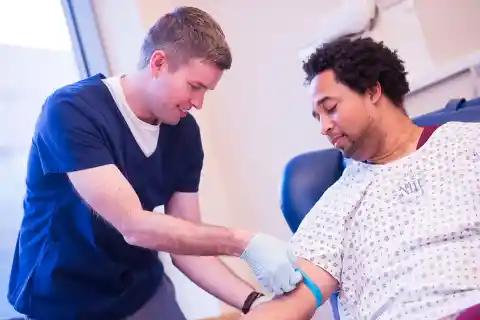
A patient in the ER gets a standard urine drug screen. It was positive for ethanol, which is a type of alcohol. The patient insists he doesn’t drink alcohol. The test is repeated. It’s positive. The patient is upset because he doesn’t drink alcohol. A blood test is drawn, and it’s negative. We checked everything we could think of. Did we have the right urine and the right blood?
It should be impossible to test positive on urine and negative on blood. Elevated white cells mean you need to look at it under the microscope because they probably have an infection. It’s loaded with yeast. The man was diabetic and had high glucose in his urine, along with a yeast infection of the bladder. The yeast was fermenting the glucose to ethanol within his bladder. He was The Man Who Peed Beer. Reddit User: emmster
An Unexpected Delivery
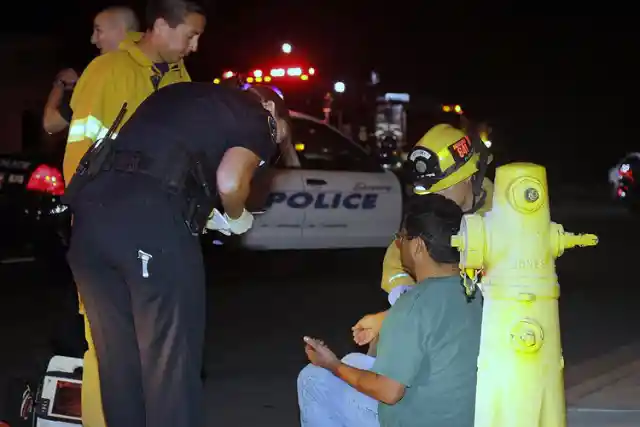
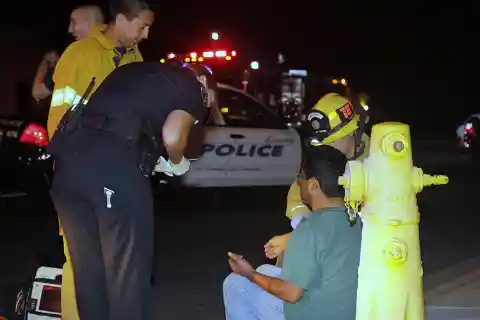
There was a guy in the UK that had to stop driving because he has auto-brewery syndrome. Basically, the makeup of his digestive tract turns anything sugary/yeasty like bread into alcohol. He got stopped by the police and blew over the drink-drive limit.
Took quite some time to prove he hadn’t been drinking and that it was a medical condition….He didn’t know he had it at the time when he kept being pulled over by the cops in the beginning, but eventually, after doctor visits, we managed to sort him out.
They definitely didn’t teach this to us in medical school, and we only found it thanks to research. Obviously, your body constantly being a bit drunk isn’t great for your liver, so he’s on a special diet to counteract the effect. Reddit User: Vectorman1989
A Comedy of Errors
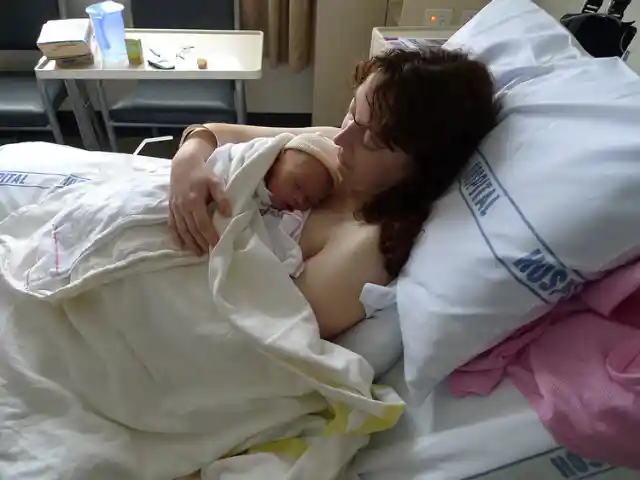
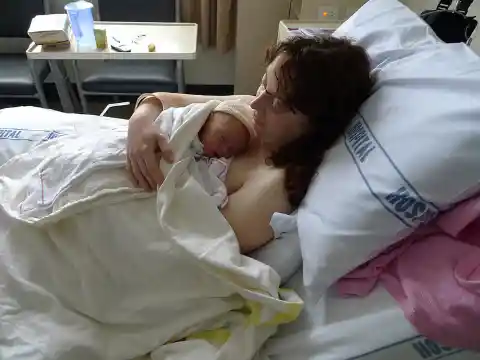
I was in my first year out of family practice residency. The specialists like to refer to us as jack-of-all-trades/master of none sneeringly. I was on call from the ER. A normally unshakable ER doctor was beside himself. I had a very preterm mom in active labor.
And fog wouldn’t let us fly her out. He was the only ER doc, and the transferring facility wouldn’t take her in transport without a physician on board….On the way, I was trying to coach her to breathe through the contractions. But she felt something coming out. I looked and saw a foot.
So we’re in the back of an ambulance delivering a footling breech preemie. We delivered about a minute or two out of the hospital. They were expecting a mom in preterm labor. Not a micro-preemie. That was 12 years ago. She survived and is doing great. Reddit User: KamranTechInfo
Something From A Nightmare
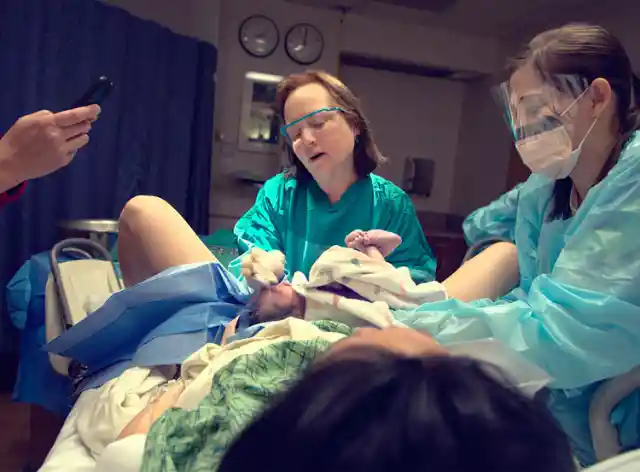
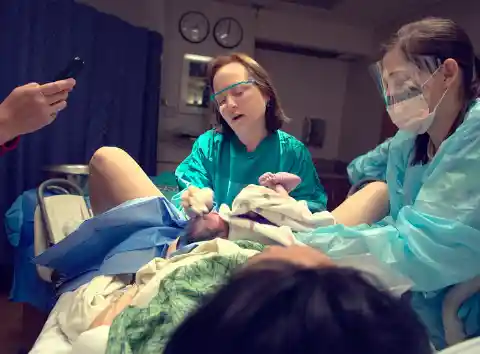
Nurse here. A very panicked nursing assistant came running to the desk one day, saying, “You have to come to see this! I don’t know what this is!” The NA brings me into a patient’s room where she’s giving a bath and points to an area on the patient’s buttocks. “What is that?” I lean in for a closer inspection….
The patient starts to turn back around and says, “Is that my eye?” Sure enough, I didn’t receive in the report that my patient had a prosthetic eye, which at some point came out of the socket and became suction-cupped to her buttock. I left the room and have never laughed so hard in my life. I was never prepared for something as funny as that. Reddit User: xx__Jade__xx
Get Ready for a Fake Eye
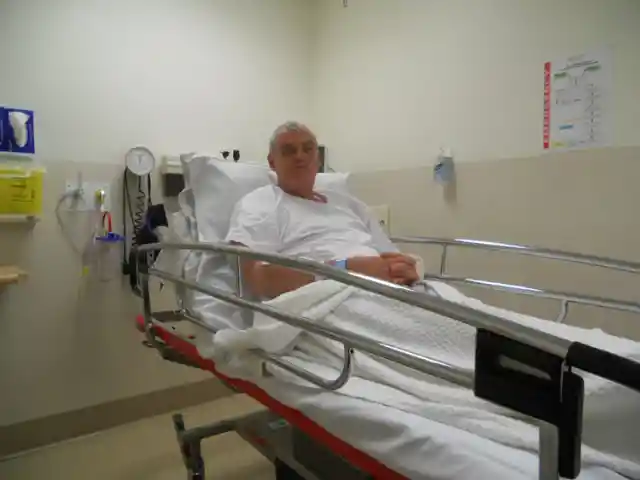
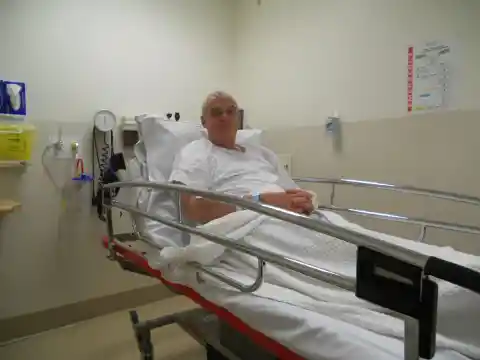
When my mum was fresh out of nursing school in the ’80s, she got a job at a hospital that had a high concentration of geriatric patients. One particularly frail man took out his dentures before sleeping. During the night, he unfortunately ended up passing away. This was the same night that my mom was working the night shift, so she found him….
His cheeks were so alarmingly sunken in, my mum and another nurse tried to put the dentures back in so as not to horrify the family. However, rigor mortis had already started to set in. This made it impossible for them to put his teeth back in, and the family had to see him like that. She said nursing school definitely didn’t prepare her for that nightmare. Reddit User: [redacted]
Learning Outside the Classroom
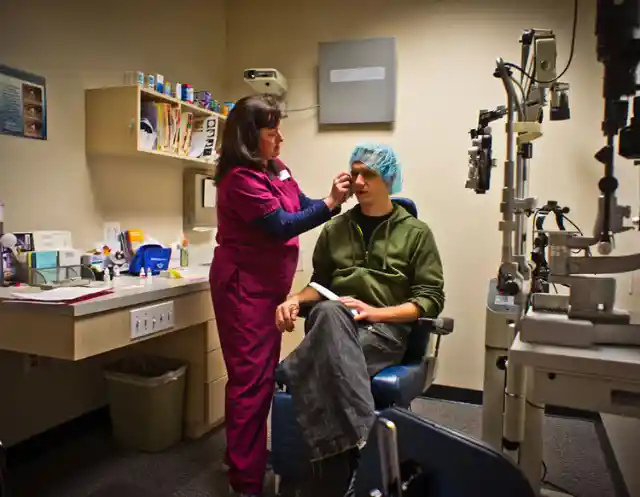
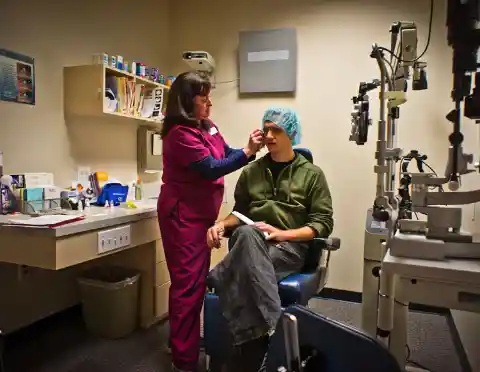
They never prepared us for how to put a fake eye back in. A patient came in from a not-so-nice nursing home with a multitude of problems, one of which was a disgusting, draining fake eye that had to be removed for treatment. Upon discharge, we had to put it back in. Simple enough, we thought. But we had no idea how and struggled to figure it out….
I suppose that’s why the nursing home staff never took it out to clean it. Let me preface this by saying that this was decades ago. Fake eye technology is probably much better today, and this most likely won’t happen to anyone else. It’s the seemingly simple stuff like that that trips up a lot of people in the medical profession. Reddit User: allthedifference
Rewarding and Tough
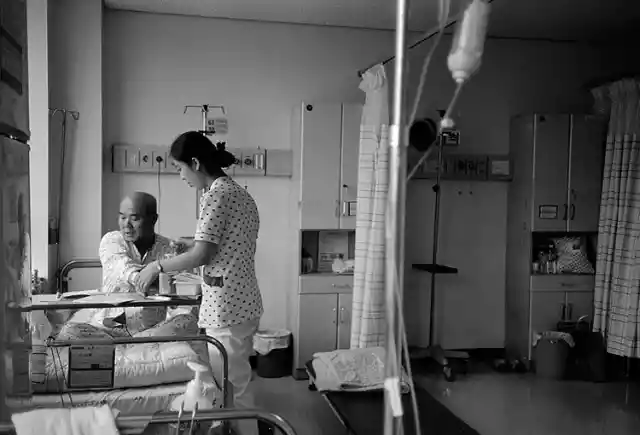
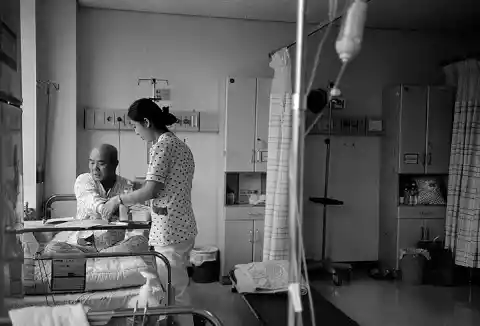
I didn’t learn how to react when a patient’s bowels pop out of their incision. This happened when I was a brand new nurse but off orientation. Quite a learning experience but came in handy because a few years later, it happened to a different patient, and I knew what to do. You have to keep the bowels very moist, covered with sterile gauze….
And then the patient is rushed to the OR. Some of you may have learned about this back in school. I think I remember learning about it but never learning what to do if it actually happened to a patient you were busy working with. You definitely learn a lot more when you’re actually working in the field rather than when you learn in a classroom. Reddit User: track_gal_1
The Most Memorable Stories
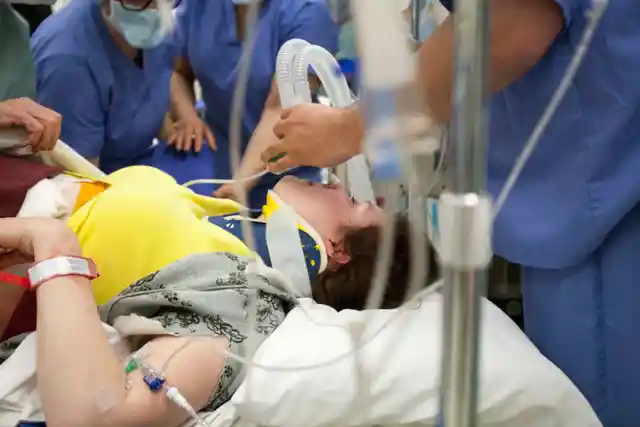
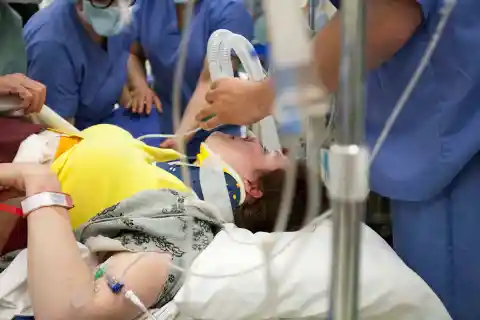
Respiratory therapist here! They don’t teach you how to act when we unplug the ventilator to let go of a patient, especially when the family is around. To their defense, they do warn us it’s going to happen, but it’s never until you actually do it that you realize the weight. I like to talk to my patients, even if most are already brain dead at this point….
Although I did have to unplug conscious patients; that was hard, to say the least. This gives me a sense that at least if even a small part of their consciousness is still alive at this point, they know they’re not alone. I tell myself that at least from now on, they won’t be suffering anymore. It’s a tough place to work but also very rewarding at times. Reddit User: 2pass2
Being a Human Stressball
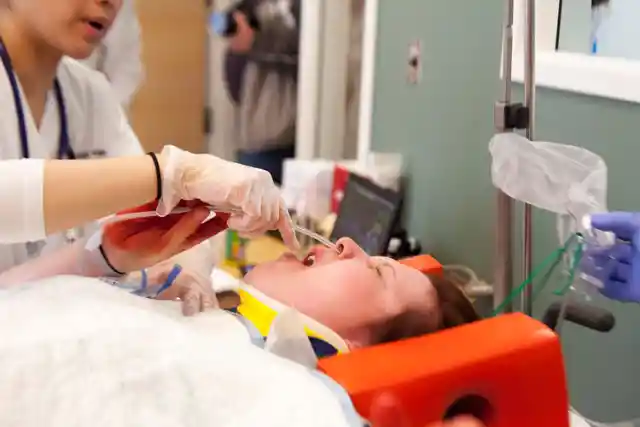
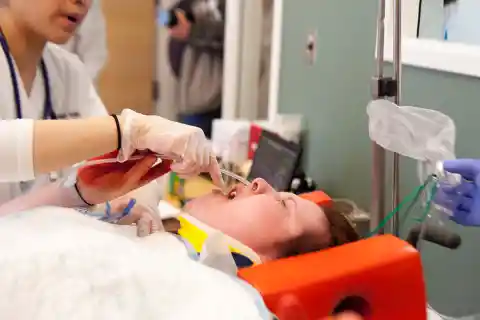
Number one most memorable: A cardiac massage for ten straight minutes while a guy was bleeding to death from multiple gunshot wounds. I had to stick my fist up through someone’s left lung to locate the heart and to directly give them CPR. I was literally pumping this dude’s heart so it can keep circulating blood. I felt like I was making a fatality move in Mortal Kombat….
It was surprisingly small and very squishy. They never teach you to expect the unexpected. I got floated to the ICU on a slow day, and they immediately gave me a patient who was violently hemorrhaging out of his mouth while all of the family was inside freaking out with me. He died an hour later. I also had two patients come in with knives in their eye sockets, awake too. Reddit User: BerserkPotato
Some Crazy Stories
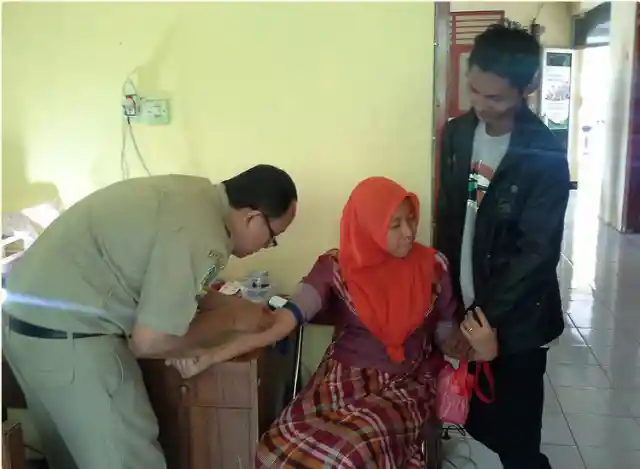
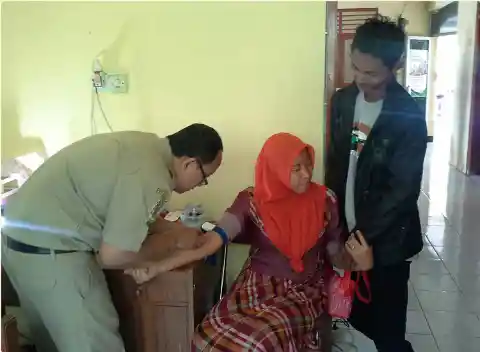
If you have a patient in labor or in any painful procedure who wants to hold your hand, only let them hold two fingers. They can’t squeeze them too hard and break the bones. They still get the comfort of human touch. I’ve had patients in labor pinch me, pull on my clothes, and squeeze my two fingers as hard as possible….
Some are just panicked, but some seem to be angry and want to hurt someone. I calmly ask them to stop with the pinching or pulling on my clothes because that isn’t helping them. These are often people who have refused an epidural because they’re afraid of needles, and I understand that, I just am not going to be black and blue. Reddit User: pitpusherrn
Perform an Exorcism
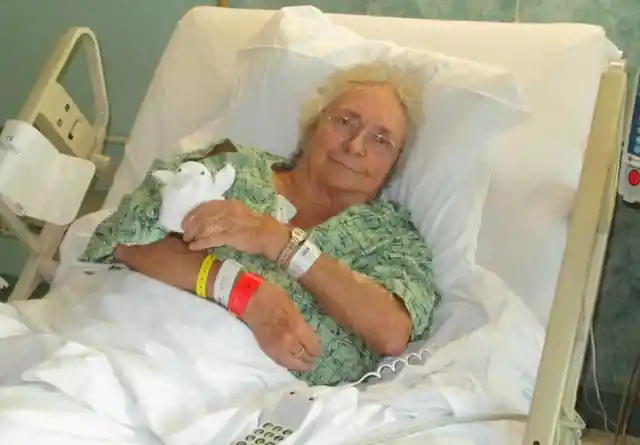
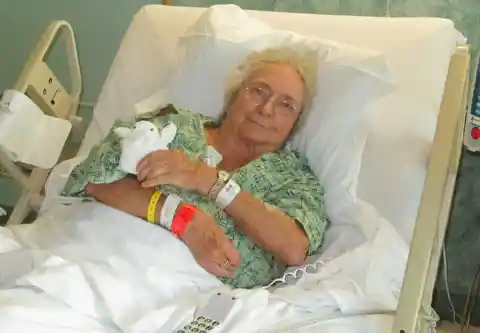
I had a patient with horrendous teeth; we reckon he was most likely a user. A couple of teeth fell out during the intubation, so they sent him up with them in a denture cup. That was a really awkward conversation when he woke up. Another time, there was a 100-year-old grandma in the hospital who ended up breaking her hip from falling out of bed….
The real shocker was that the bed she was falling out wasn’t hers, wink wink. On a more serious note, the “your loved one is gone” phone calls. You can never be prepared for something like this, and I don’t think it ever gets any easier. This is usually done by the doctors, as I feel it should be, but sometimes nurses do it. Reddit User: Spikito1
Learn CPR and First Aid
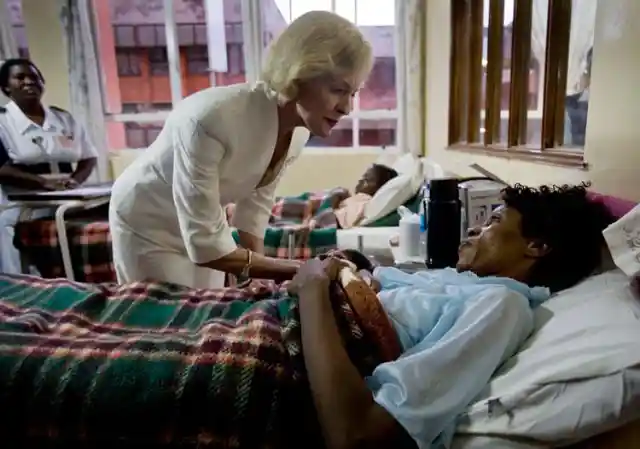
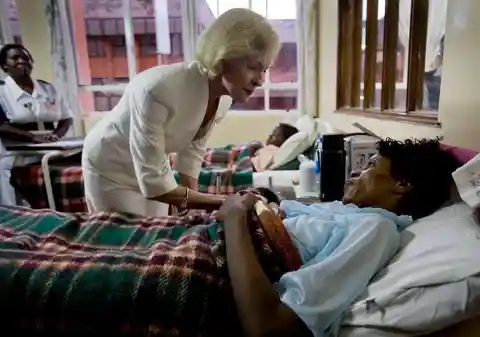
I had a 60-something-year-old female patient show up for a same-day appointment to establish care from out of state. No medical records, denied any major medical history or medications. Never smoked, drank, or did drugs. Midway through the exam, she starts telling me that she sees “evil lines” all over her house. She states she’s unable to cross these lines….
And thus, she’s unable to access parts of her house, including her bathroom. She hears voices coming through the walls. Thinks the neighbors are hexing her all the time. She starts talking about the occult and freemasons ruling the world. She suddenly stops mid-sentence, stares at me without blinking, and wants to know if I could perform an exorcism. Err…sorry. I missed that section in medical school. Reddit User: dagayute
Experiencing Patients With Dementia
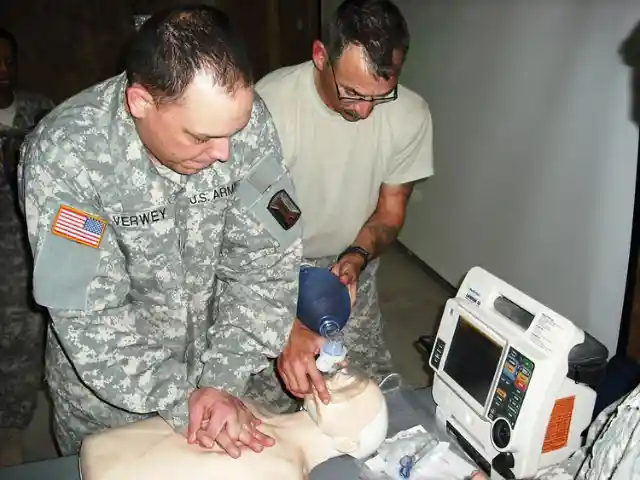
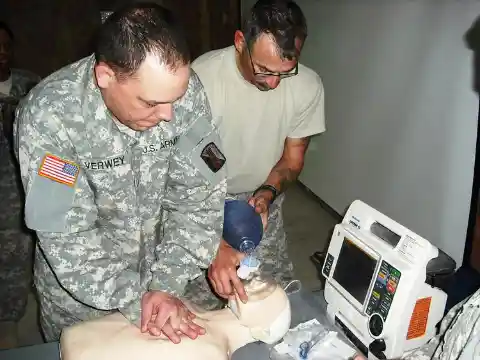
I took a CPR class and learned basic first aid. Google and learn about living wills, advanced directives, and DNRs. Talk now to your loved ones about what you want to happen when you’re no longer able to care for yourself/be kept alive via machines/able to make decisions. And please know that people in the medical community are overworked….
They’re also underpaid, miss their families, probably have to go to the bathroom desperately, and are here for you and your family. These are things that you don’t need to go to medical school for, but it makes our jobs easier if you do know how all of this works and have everything in order; otherwise, we’re stuck making the tough decisions. Reddit User: Helloitsmommy
The Importance of Life Conversations
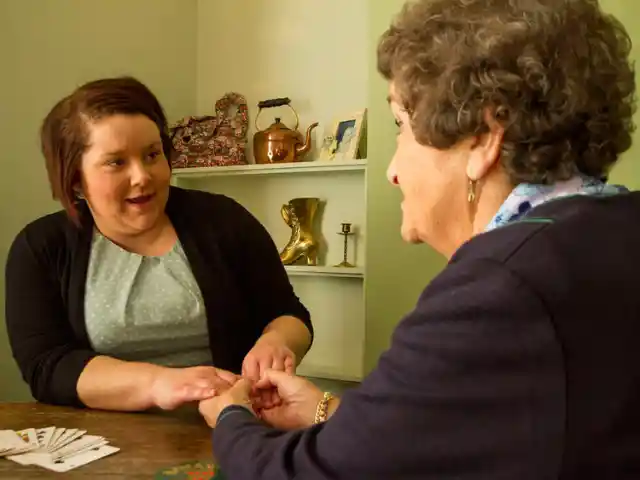
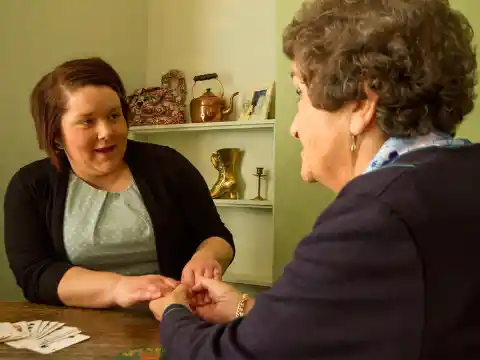
People with dementia sometimes forget some or all of their own family members and also forget common social decorum. I can’t go a week, and it never gets easier, but one of these patients will openly talk about the attractiveness of an adult grandchild. But let me backtrack; by the time the patients are with us, the family realizes that the end is near….
So a lot of people that weren’t always present in the patient’s life start showing up, and obviously, the patient has deteriorated since their last visit. The grandpa, grandma, mom, dad, whatever they are part of their life is gone. The patient kind of becomes their true unfiltered self in a way. Some families get the fortune of kind of getting to see this person as how their friends see them. Reddit User: Jfhuss
The Labor Stories
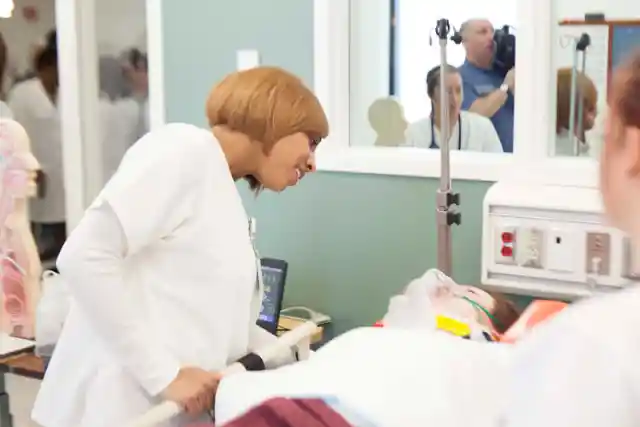
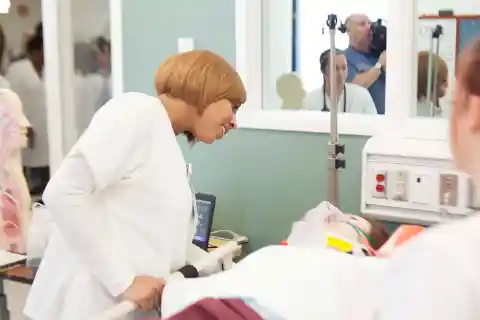
One thing you don’t learn about is dealing with patients with no hope of recovery in the ICU. It’s difficult from a resident standpoint, as I don’t want to see these people suffer indefinitely because I know that I wouldn’t want that for myself. Regardless, I would say that most families are full-court press in resuscitation even though it won’t change anything for them in the long term….
Every time these patients pass, people are either grieving or grateful that their loved one is no longer suffering. What they don’t teach you in med school is that people are people. It’s their dad dying, and they won’t be the one to say let him go no matter how bad the pathology, and that’s not their fault. I never realized in school how important goals of life conversations would be. Reddit User: gn4rcot1cs
You’ve Either Got It or You Don’t
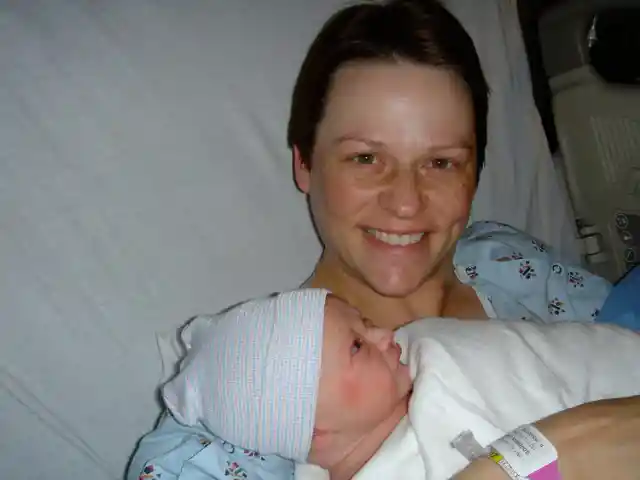
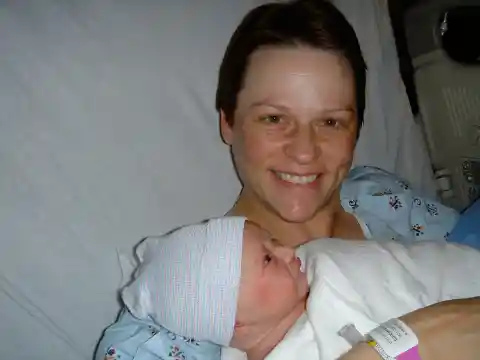
As a student nurse, I observed a cesarean d/t preeclampsia. The lady is awake with an epidural in place and a screen in front of her. All went well, nothing dramatic there. The uterus was sewn back up, and I was starting to relax and look around when the surgeon asked the med student at the foot of the bed to step aside….
He then reached in and pumped the uterus twice and hard, forcing the remaining after products out of her vagina fast; the wall wasn’t that far from the foot of the bed, and that student had definitely been in the line of fire. The pt didn’t notice, and the husband didn’t seem to. The med student and I looked at each other, and she just said, “I guess that’s logical enough….” Reddit User: Tomgang
Ice Ice Baby


I’m not a nurse or doctor, but I’ll never forget the comment my labor and delivery nurse made. I had been laboring in the tub at the hospital but wasn’t supposed actually to birth in it. When all of a sudden, I could feel the baby coming, my husband pulled the emergency cord, and the nurses rushed into the room….
Through the haze of baby crowning pain, I heard a panicked nurse say, “I don’t know what to do. What do we do?” I distinctly remember laughing to myself and heard my midwife’s calm voice say, “It’s okay, I’ve got it” as she moved past the nurse and took over. These are things that can’t be taught in med school; you’ve either got it or you don’t. Reddit User: OhMyOprah
The Effects of Anesthetics
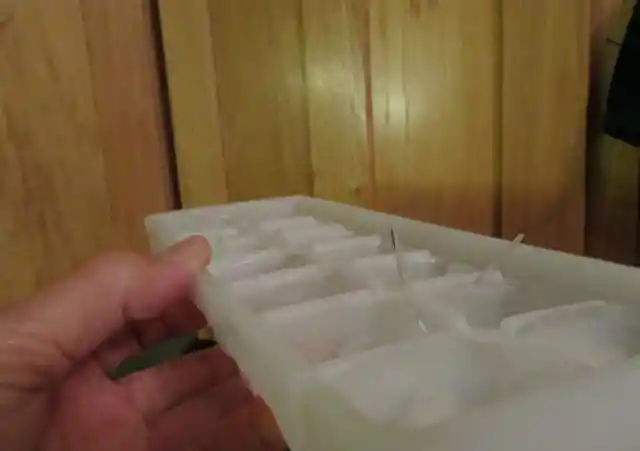
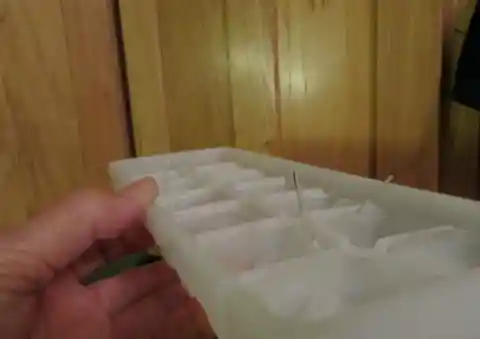
Long story short, a resident at a nursing home had hemorrhoids, and they were noted to be bleeding at the beginning of my shift. I stated to my CNAs that they were to notify me when they change her so I can scale the amount. Orders for the medicine were sent in.
Nothing from the CNAs, but the resident was fine when I checked on her. I pass on the info to the next shift and go home…. I get called into the office the next day to be yelled at about it. I followed protocol and charted accurately; medicine is not available at this time, none in the backup.
So they then ask me why I didn’t put an ice cube in her. An ice cube? Yes, they say. They ask if I learned about that in school. Ummm, no…. We have to have orders from a doctor for a cold pack, let alone put an ice cube where the sun doesn’t shine. Reddit User: ladyPHDeath
A Smile Makes It Worthwhile
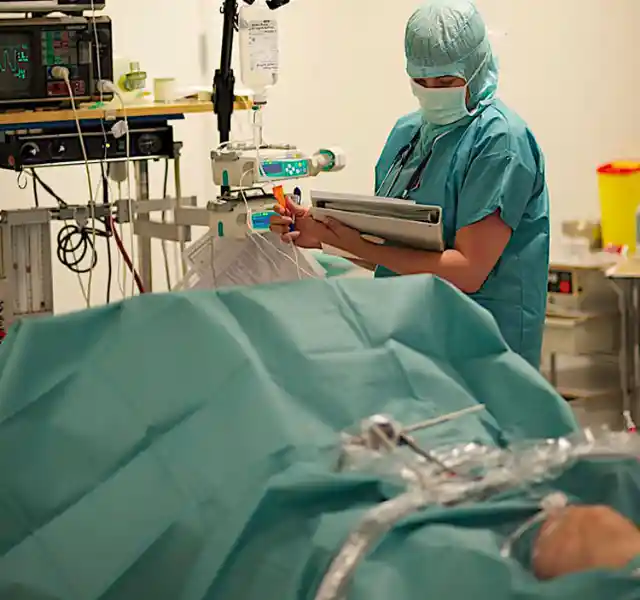
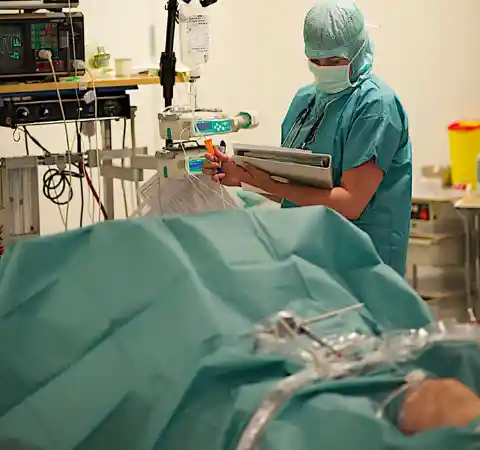
Some people talk while under anesthesia. Some people even scream. I used to go home in tears especially after very vocal patients. The only thing that helped was when patients would wake up and tell us, “Thank you so much. That went so fast.” Post-op checks a week later where I could see the patients were still okay helped too….
I remember asking the doctor over and over when I first started, “Are you sure they’re under, are you sure they’re numb?” Now after a few years of experience, I understand how much local anesthetic he used and that patients were likely numb for a few hours post-treatment. I’m a dental assistant who worked for an oral surgeon. Reddit User: throwaway61419
It’s the Job of the Doctor
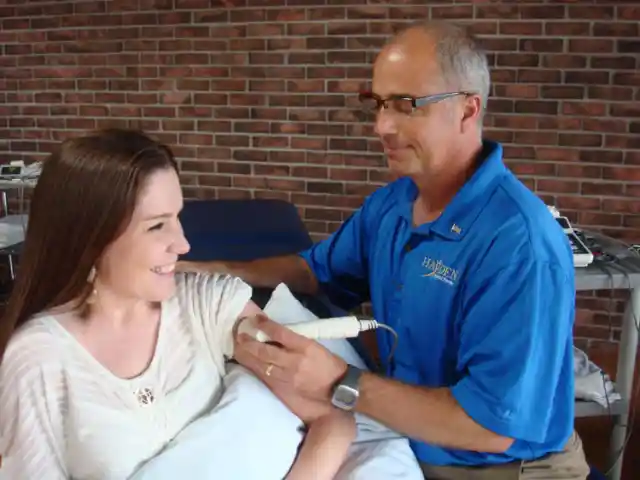
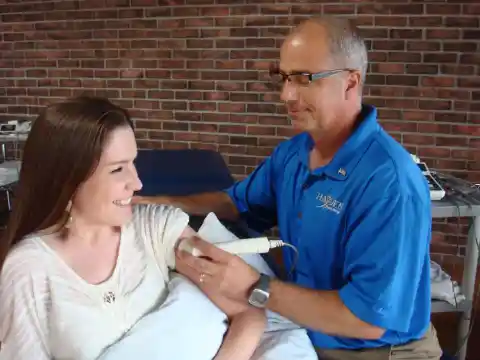
Training really emphasizes procedures: things we do to patients. We’re expected to be good at them and to want to be good at them. What we’re not taught is that we may well find that this isn’t what makes your day. I’ve delivered hundreds of babies, responded to codes, attended patients in the ED and ICU. It’s all very exciting and gratifying….
On the other hand, what gives me a sense of satisfaction in treating depression, chronic heart and lung disease, and helping patients deal with cancer? I guess I just feel better about helping someone breathe or feel better in their lives without doing invasive things to them. Seeing someone smile for the first time in months makes the whole day worthwhile. Reddit User: RichardBonham
The Experience of a New Nurse
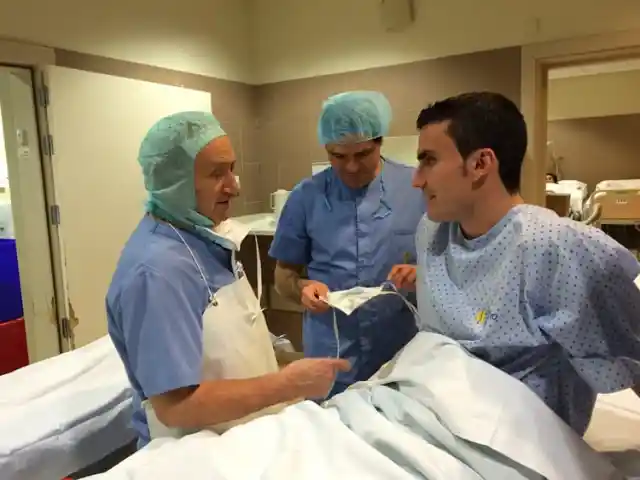
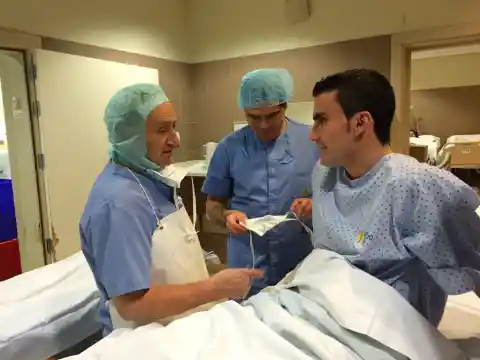
I’m a nurse. They don’t teach you how to maintain honesty when your doctor skirts around a cancer diagnosis. I’ve had a few cases where a physician avoids patients’ and families’ questions and tells them to wait and see what pathology shows. The doctor will spend 30 seconds in the room, giving vague information and leaving me to pick up the pieces….
Patients often ask, in your opinion, what is this most often? What did it mean when the doctor said this? And my response is almost always “when it presents like this, this is usually cancer.” I then spend the next 30 minutes educating the patient and offering resources on what the next steps would be. The doctors should really be the ones doing this instead. Reddit User: hfranks84
The Priest and the Nail Clippings


I’m still a pretty new nurse, but I was a psych nurse for nearly two years, and honestly, we learn very little about psych in school. The clinical was basically useless. So there was a lot I had to learn as I went. Like how to stay calm when you’re trying to talk someone into putting that sharp object in their hands down….
Or how to deal with a psychotic teenager who’s bigger than you punching holes in the drywall and then using the pieces as a weapon. Or what to do when you walk into the dark day room at 3 AM to find your patient perched on top of the giant TV near the ceiling like he’s schizophrenic Batman. I miss psych, honestly. It can make med/surg seem so boring sometimes. Reddit User: duuuuuuuuuumb
The Maggot Misconception


I used to be a pathology collector (phlebotomist that also collects all the other bits), and two patients come to mind. The first was a fella who needed some nail clippings/scrapings done for fungal testing. This guy needed it for his hands. His nails were yellowed and starting to deform, and there was a smelly cheese-like substance under them. First and only time I ever had to try not to dry retch in front of a patient….
The second was a different guy, having pain when urinating, so the doc sends him in to do a standard UTI and STI panel. Poor guy was so uncomfortable, not that I blamed him, but my hardest task was explaining it all with a straight face. He had come from work, so he was still in ‘uniform.’ He was a priest. Reddit User: Micromoo_
The Tougher Side
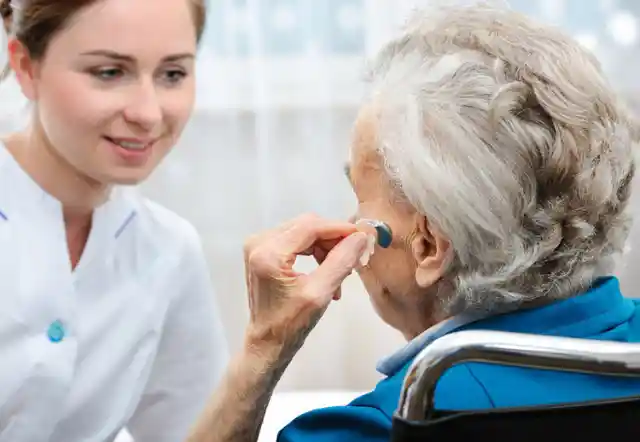
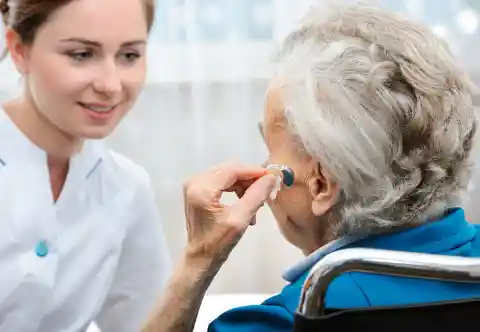
I don’t think I was adequately prepared to see stuff crawling out of someone’s wounds. Or for the smell of people who have that. I’ll never forget this one poor woman who’d had a stroke and became unable to walk, but her partner didn’t realize and so just kept giving her wine for about a week, breaking down the skin and opening wounds for flies to lay eggs into….
So by the time someone called an ambulance, she was in an extraordinarily awful state. The stuff crawling did keep the wounds cleaner than they would have been, but it still took weeks of intensive wound care to get her anywhere near right. Both of them were alcoholics, which is why the guy didn’t notice her issues. Reddit User: sojahi
A Change in Departments
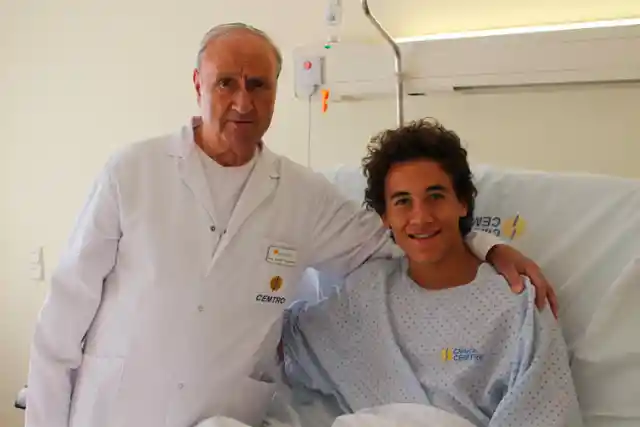
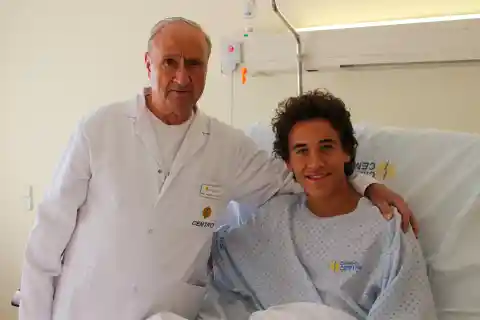
So many things; you get told bodily fluids might get on you, but I wasn’t quite prepared for urine to go in my eye…twice. That some people will ask you for a bed bath and pretend they can’t get up so that you’ll clean them, then walk around the ward later and laugh in your face. That you can end up very injured; I got two black eyes, and a friend had her wrist fractured….
That you never forget the first person you lose, that their last words stick with you; someone who was mentoring me at the time taught me it was okay to cry when this happens. That you have to keep on smiling after you do lose someone because if you go into the next room crying about someone that died, it only reminds them that not everyone gets better. Reddit User: hollabile
Dealing With Beer Withdrawal
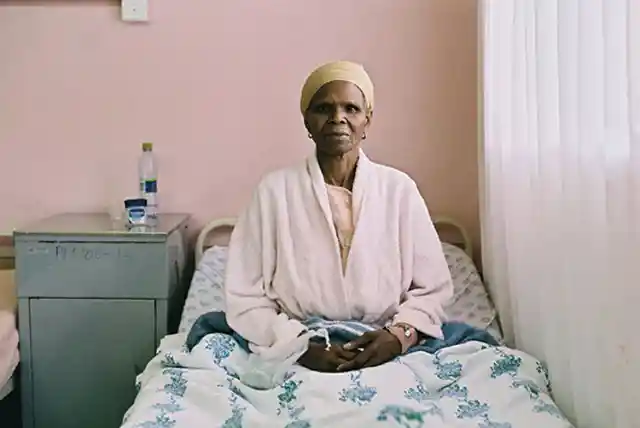
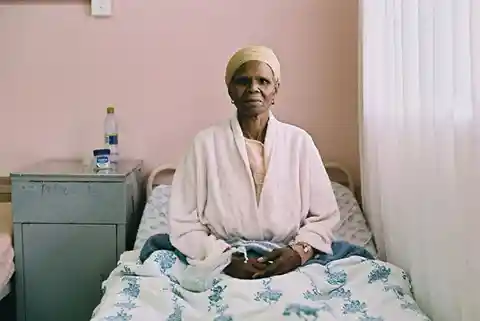
On my first day in a new ward, an older woman rang the buzzer in the bathroom. I was keen on impressing her, so I ran straight to her. I was confronted with a wall of smell and what looked like an explosion of…well, you can imagine… everywhere, up the walls, and just everywhere. It turns out she didn’t think she needed her laxative the past few days and hid them….
The doctors, wondering why they weren’t working, increased her dose, then she took them all at once when she felt bunged up, she had also been eating an abundance of fruit. I had to use several disposable mops to reach parts of the wall. I’ve never seen anything like it. Luckily I work in neonates now! Reddit User: Pondering_mymind
The Moral of the Story
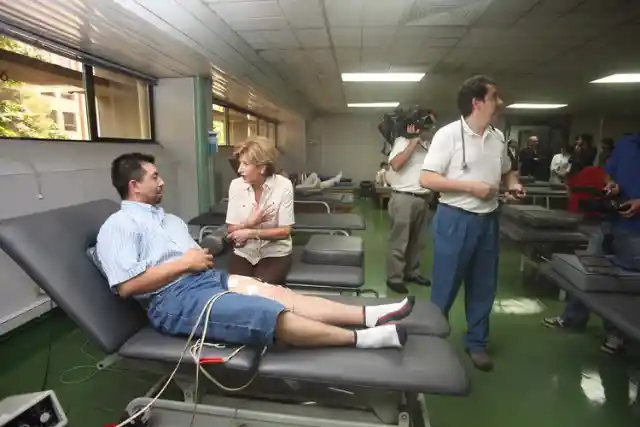
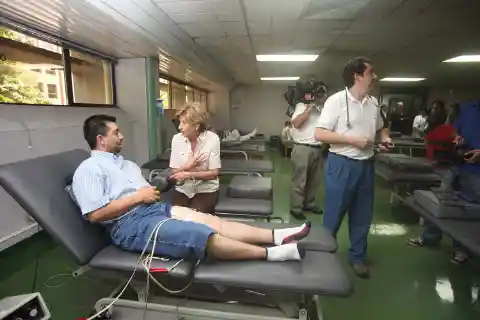
I cared for a patient on the med/surg floor of the hospital. Diagnosis: gallbladder disease. About 3 days into his stay he complained of bugs in his room, then rats, soon becoming agitated and hostile. We weren’t aware that alcohol withdrawal could set in 3 days later, and his intake interview recorded “sometimes a few beers after work.” The patient threatened all who approached him….
He refused all meds, including sedatives that are used to treat DTs. Soon he moved his roommate’s bed, with the roommate in it, to the room’s closed door and barricaded them both inside the room. The roommate was quite ill with COPD, had IVs running, and needed a breathing treatment. I was really worried about both of them and clueless how to deal with this. Reddit User: quaquero
The Emotional Side of Medicine
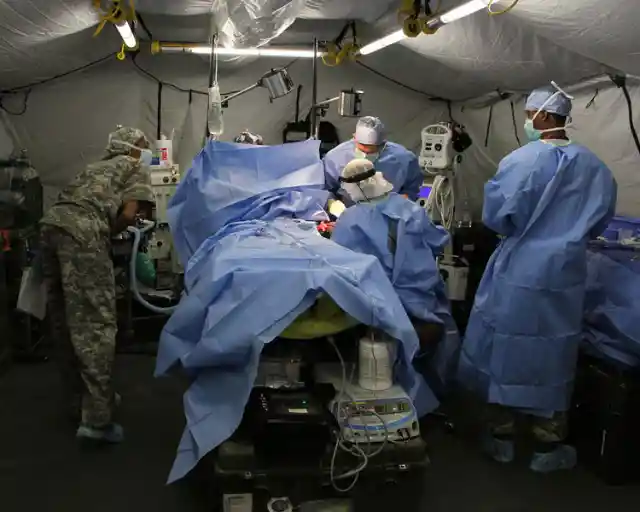
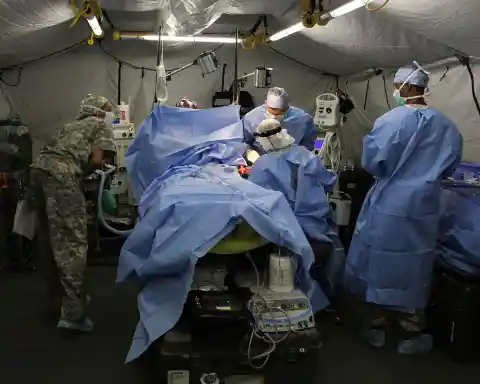
I work on a surgical floor with mostly general surgery patients. We also get patients who haven’t had surgery but are under the care of a general surgeon for one thing or another. We get a ton of GI bleeds, and the worst ones are always the alcohol-induced ones where you damage your liver so badly that the blood can’t get through, and the pressure builds up in the portal vein….
This causes the veins to grow and bulge in the stomach and esophagus. I’ve seen about four people bleed out in less than 20 minutes from one of those bursting. One of them we already took out his IV because his ride was there, then he all of a sudden felt funny, we laid him back down in bed, and then it was like a fountain of blood sprayed from his mouth. The moral of the story is: if you’re an alcoholic, you should get help before you get cirrhosis. Reddit User: nursekitty22
Keeping a Poker Face
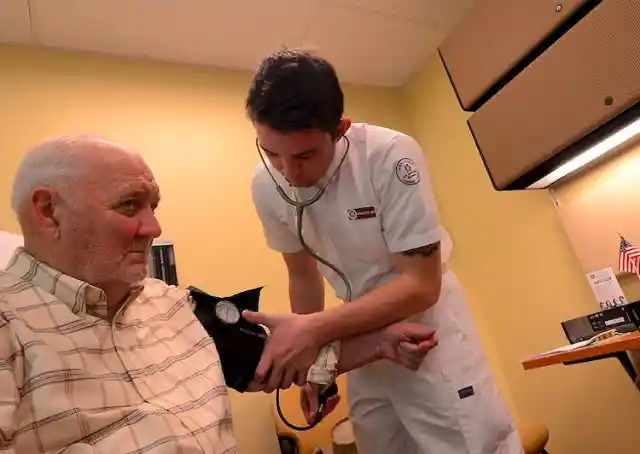
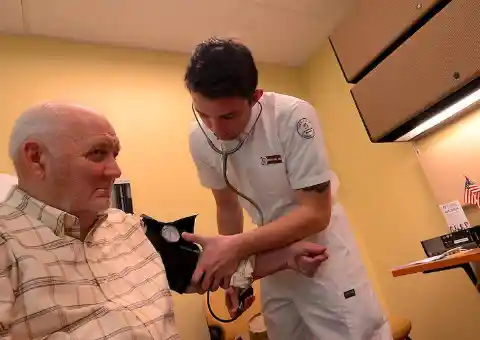
You learn everything about the human body anatomically, physiologically…you know it. However, you don’t learn about the real emotional side of health care until you actually get out there. I had a patient who was depressed and got into a physical altercation, and the county jail brought him to our hospital for complaints of chest pain….
He was a lawyer many years ago, and during a case where gangs were involved, the gang he was prosecuting shot up his law office, killing his assistant. He had a psychological break. Lost his law license and has been bouncing around, hanging with the wrong crowd. The guy’s lack of emotional stability has resulted in him not being able to catch a break. The tox screen was clean. He just couldn’t get himself out of this hole. Reddit User: JustCallMeYarr
The Flying Oysters


My young, newly married patient got in a bad motorcycle crash with her husband. She survived, and her husband didn’t. She wakes up and starts yelling, “Where’s my husband?” We can’t tell her that he didn’t make it, only the doctor can do that. The doctor couldn’t come up for 3 hours, and we couldn’t tell her anything. So I would walk into her room knowing that her life was about to be destroyed….
My gut still hurts thinking about that. “Can I get you anything, ma’am?” “I just want to know where my husband is, is he okay?” I would just tell her that I wasn’t sure, but no matter how hard I tried to poker face it, I think she could tell in my voice that he was gone. There’s no chapter on that in Med Surge. Reddit User: GhettoBuddhaKinda
A Good Old Nokia 3310
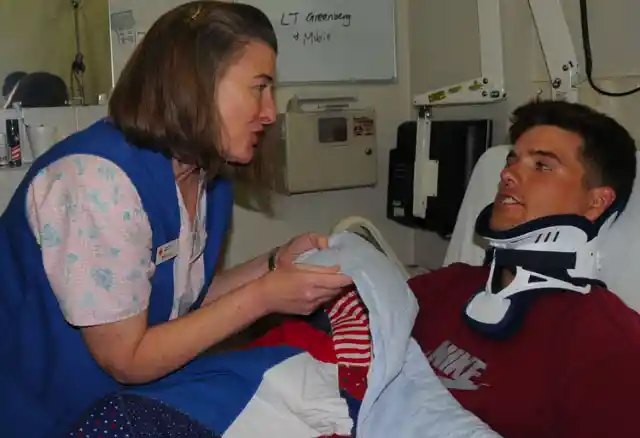
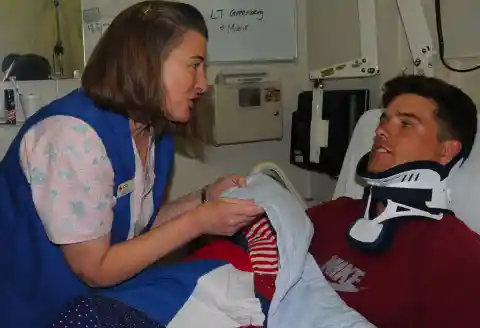
You aren’t prepared for patients ripping their call light out of the wall and swinging it over their head like a lasso, yelling variations of “c’mon little piggy!” to any staff member who tried to intervene. You aren’t ready for bath salts/PCP/etc. and the absolute absurdness of trying to treat people high on them….
You don’t expect “flying oysters,” aka the sputum that comes out of a tracheostomy and flies through the air. Actually, that one I did learn while still a nursing student, but I hadn’t been told not to stand at the foot of the bed of a trach patient, and while it takes a lot to gross me, out, receiving that “oyster” straight to the v-neck of my scrubs is actually the closest I’ve come to losing chunks. Reddit User: dandelion_k
Feeding the Elephant
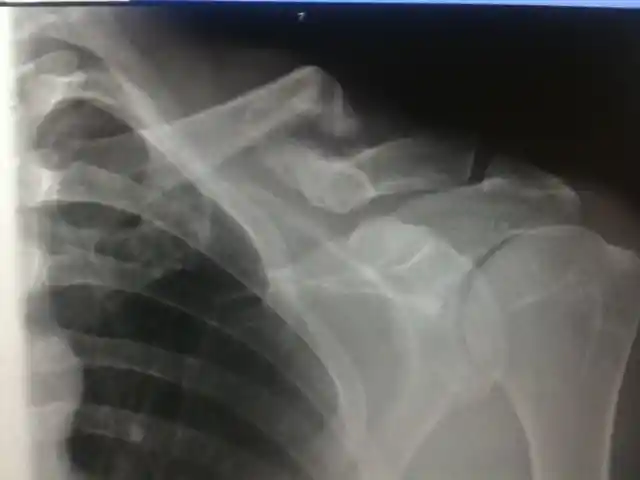
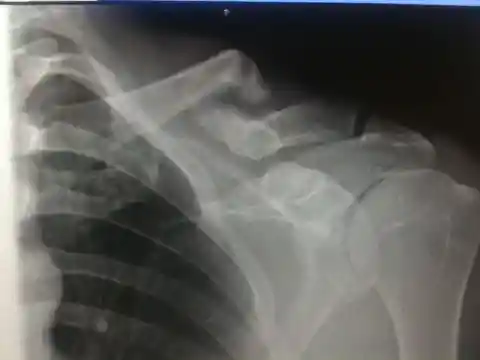
I’m a radiographer. This happened about ten years ago. Occasionally we x-ray prisoners. A female prisoner comes in with two guards for a check-up on the femoral nailing. She gets changed and hands her clothes to her guard. We take an x-ray of the hip and see some sort of device over her bladder. Confused, we take another picture focusing on more of the pelvis….
She had shoved a mobile phone up herself. Prisoners aren’t allowed mobiles in prison, and they get confiscated if found. It was the one hiding place she had after giving her clothes to the guard. Interestingly, it was an old Nokia 3310, it had a hand free kit wrapped around it, and ironically, she was on Virgin Mobile. Getting it out and giving it to the guard was interesting. Reddit User: NinjaRadiographer
How to Cope
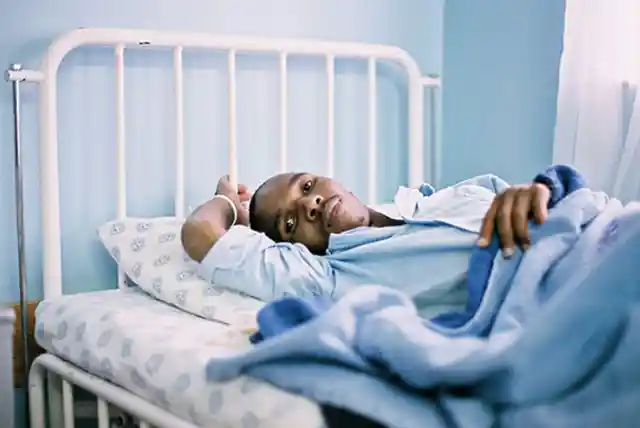
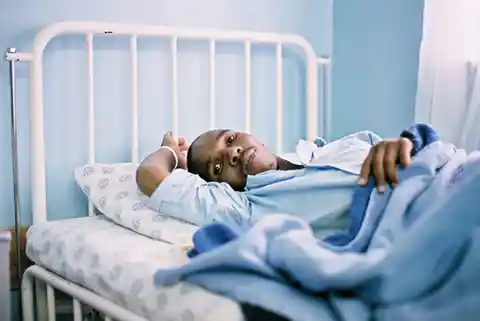
This story is from a friend who is finishing her rotations. She’s working ER for the morning, and she gets a gentleman who comes in with the issue that he’s unable to urinate. So they do the initial barrage of questions and decide that since they can’t find anything visibly wrong, they need to move the next step and go internal….
The first thing they try is to insert a catheter, but in the process, they realize something is going wrong: they can’t get the catheter in. After some uncomfortable moments, they retract the clips to see a peanut at the end of the tool. At this point, the patient then remembered having a romantic evening with his wife, and after consuming a bit too much alcohol, they decided to play “feed the elephant.” Reddit User: mulltalica
We’re Well Into The 21st Century, People
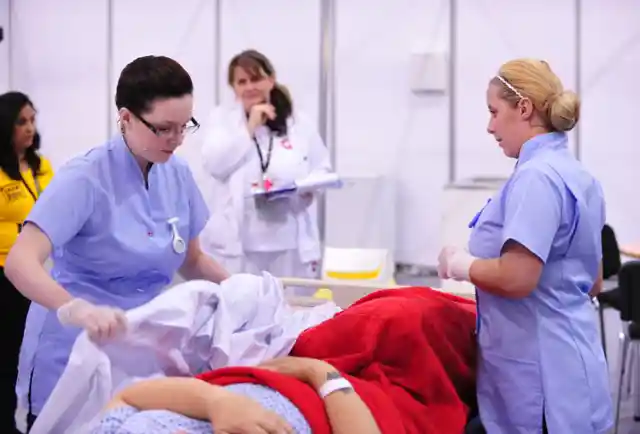
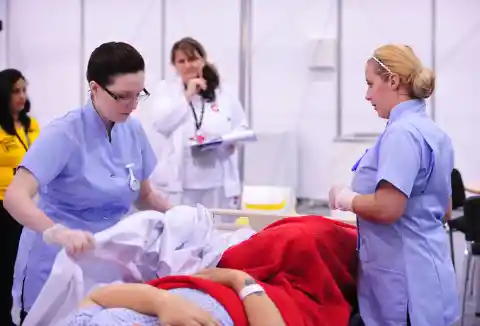
Oh so many stories to share. How to keep the ex-wife, the current wife, and the two girlfriends apart until you’ve had a chance to tell him he has to let each of them know the others exist; they got on eventually. How to stop a manic old guy braining your ward clerk with a stick….
And don’t forget how to debrief your junior on really awful pediatric results they got caught up in more or less accidentally. I could go on and on, but I can’t blame my med school. I’m not sure you could learn this stuff from a book. It really takes years of working hard and seeing stuff like this that helps you to learn coping mechanisms; you definitely need them. Reddit User: humanhedgehog
Marrying a Patient
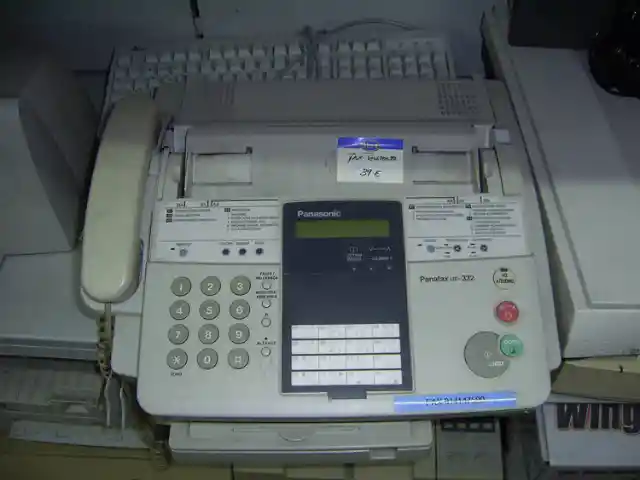
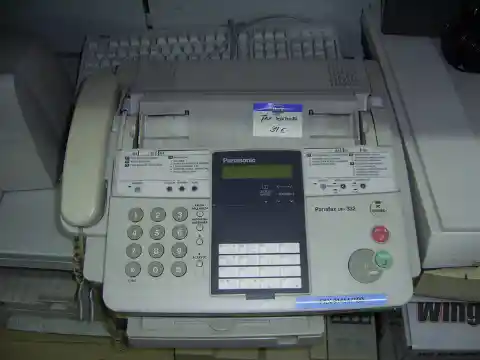
It’s a moment that’s happened to me a number of times, even as recently as a few weeks ago. This is none other than getting asked to work a fax machine. Yes, I know it’s insane, but for some reason, we still use fax machines in the NHS. In all fairness, though, there’s a plan in place to phase them out over the next couple of years….
It’s not like I have to relearn how to use one each time, nor are they particularly difficult to figure out, but using one just seems so out of place in the 21st century that I’m taken aback whenever I have to do so. Sometimes the number you’re trying to send the fax to is engaged; that’s when I usually start swearing loudly. Reddit User: dAdi88
A Syringe in Hand
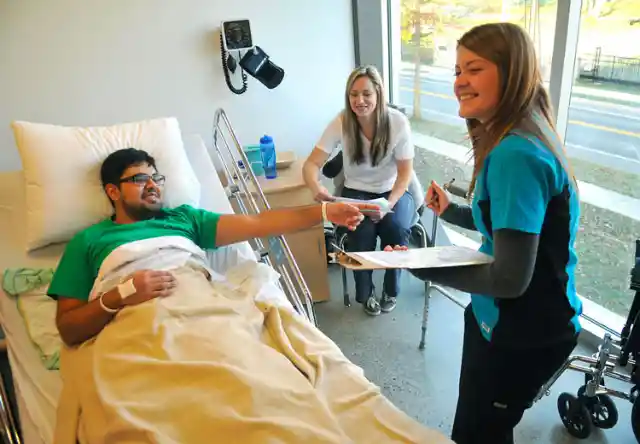
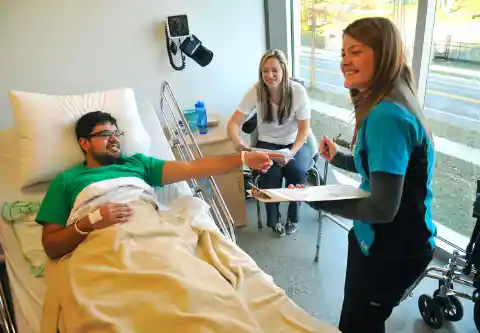
A dying patient wanted to marry his partner while bedridden in the hospital. I’d developed a real fondness for him and got to know his family over a number of prolonged inpatient stays and surgeries. It was apparent that he was deteriorating and had a big problem with anxiety, but I seemed to be one of just a few who was able to calm him down at key moments….
His partner was spending a lot of time at his bedside, as you’d expect, and he ended up asking her to marry him. I got roped into marrying them. They were 100% aware that I’m not experienced, legally or not, in wedding couples, but in the absence of something better, because I had a bond with them and because it was a dying man’s wish, I agreed to do it in the presence of their family at the patient’s bedside. Reddit User: juiici
The Feeling of Running a Code
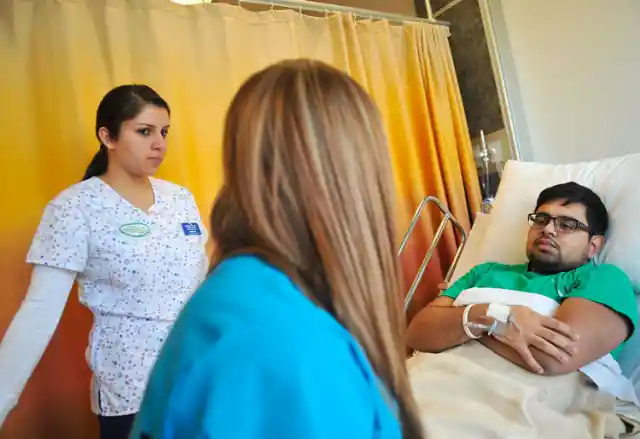
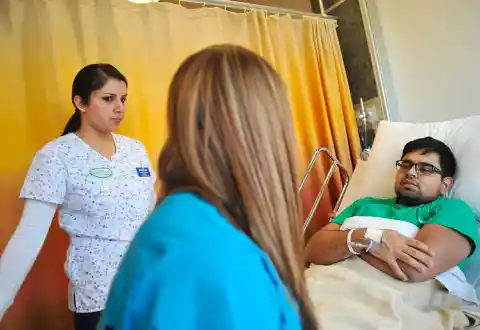
Well this is something I did learn in school but was not expecting whatsoever. First day of school, I was in the VA and was making rounds with my nurse. He was explaining to me that they had a patient that they were suspecting of drug usage but didn’t get a urine sample from. When we opened the door, the patient was cooking his substances on some tinfoil….
He was using his syringe and was doing this on the bedside table in the ward. He saw us and just threw everything out of the window and denied every bit of it. He ended up being taken into custody after. I couldn’t believe that he had ended up in the hospital for this and was carrying on doing drugs. Hard drugs are the scourge of the earth. Reddit User: thetalkingbush
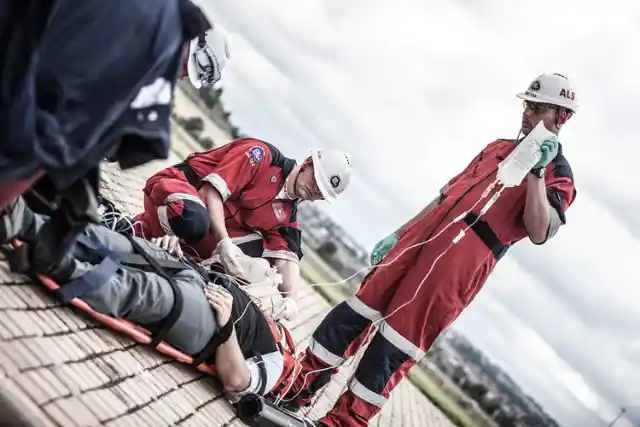
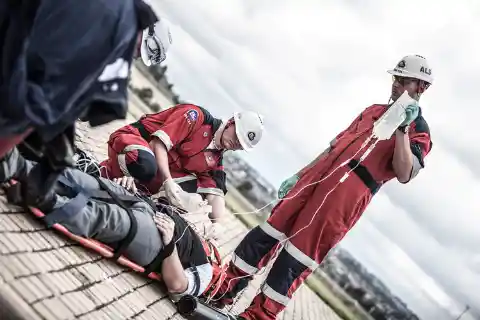
They don’t teach you the feeling of running a code on a pulse-less patient and “calling it” your first time. My knees started trembling after I lost him, and I couldn’t stand up. It’s one thing being on the sideline as an intern and someone telling you what to do and a whole different feeling leading it as a senior. It was a real learning curve….
Every single person is relying on you and following your command. The hard part is not the medicine of it; running codes is not hard. But gosh, this is a human life in your hands. I was able to bring him back once, but the second time I was unable to. I felt like I aged 50 years in that 45-minute span. Reddit User: beard_game_strong